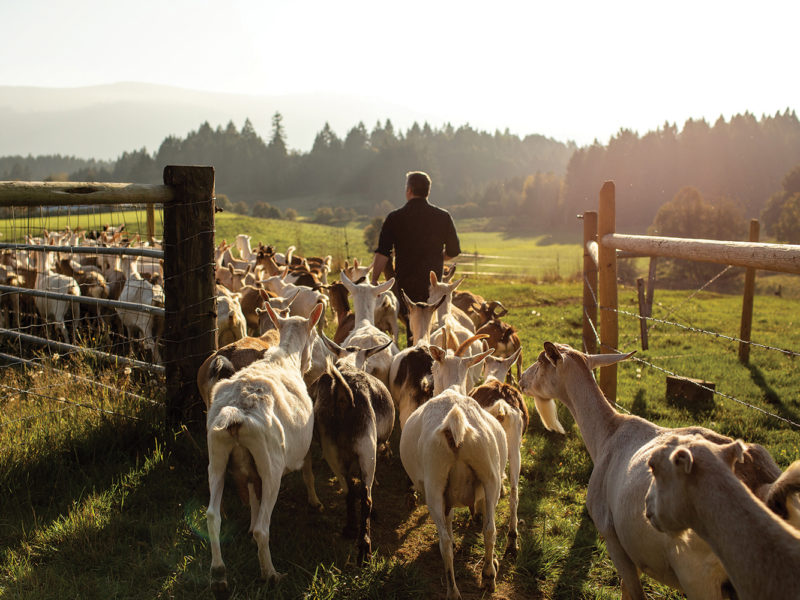DUNCAN – Keeping their animals cool and fields productive were challenges for many dairy farmers this summer, but those with processing facilities in their operations also struggled to ensure adequate milk production.
Dairy and artisan cheese producers on Vancouver Island and the Lower Mainland took a double hit as the heat stressed their animals and cooling equipment laboured to keep products from spoiling.
“The drought has affected our pasture. Our irrigation water tends to run out a lot sooner than it did 10 years ago. Right now, we’re on water restrictions, which reduces the amount of grass the animals have,” says Cory Spencer, co-owner of Duncan’s Haltwhistle Cheese Co. “When we had that extreme heat of 42°C, that put a lot of stress on the animals and milk production dropped because they didn’t want to eat. We noticed about a 50% drop in production during that time, but we saw it bounce back once it cooled down again.”
Haltwhistle sources milk from 100 goats on its farm and produces cow’s milk cheese with fluid milk from nearby Balme Ayr Farm.
The heat also put pressure on the compressors that keep the aging rooms cool, adds Spencer.
“They were working quite hard just to keep up. They aren’t really designed to work in those temperatures,” he says.
Spencer and partner Kirsten Thorarinson were forced to close their cheese shop for two days during the heatwave.
Dana Dinn of The Farm House Natural Cheeses in Agassiz also noticed a dip in production. The business produces handmade artisan cheeses and specialties from both cows and goats. Its
on-farm shop sells cheeses, butter, Greek-style yogurt, buttermilk and bottled fluid milk.
“This summer has definitely been quite the feat for us here, both on the farm and within our cheese plant. Keeping our cows and goats comfortable and well-hydrated in the heat is a full-time job in itself. The stress of the heat often causes a dip in milk production, which means less available product for our customers,” says Dinn. “Our cheese caves and refrigeration systems were all working overtime through the last heat wave, and young ripening cheese in particular is very sensitive to temperature and environmental changes. We’ve lost some cheese to the heat, that’s for sure.”
Farm House Natural Cheeses also cancelled participation in several farmers markets during the summer because the fridges in its market trucks were not equipped to handle excessive temperatures.
“All in all, it’s been hard, and we unfortunately have experienced a lot of loss,” says Dinn.
Some operations made it through the heat and drought relatively unscathed.
Resilience
Nancy Gourlay, co-founder of Little Qualicum Cheeseworks and Morningstar Farm in Parksville, credits sustainable production practices with the operation’s resilience through this summer’s challenging conditions.
The farm’s pasture management maintained sufficient forage production for the herd, even without a third cut.
“We have always believed in the environmental benefits of permanent grass pastures, both as a carbon sink and for resilience in the case of drought. While other farmers across the West were waiting for that moment when they could get on their fields with equipment and get seed into the ground – then wait for rain – we were happily watching our grass grow,” says Gourlay. “Responsible forest, vegetation and soil management will be key to agricultural sustainability in our neck of the woods.”
Continuing that legacy will be Albert Gorter and Chelsea Enns and their young son, who purchased the farm and cheese business this summer after managing Gorter’s parents’ dairy farm in Manitoba.


 Female ranchers excited for mentorship opportunities
Female ranchers excited for mentorship opportunities